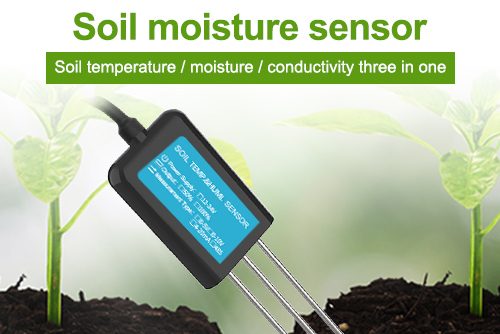Soil moisture meter
Soil moisture meter are an essential tool in modern agriculture, helping farmers to optimize irrigation and improve crop yields. With the advent of IoT (Internet of Things) technology, these devices have become even more powerful and versatile, offering real-time data collection and analysis for precision agriculture.
Iot-enabled soil moisture meters come with sensors that measure soil moisture content at different depths. These sensors are connected to a network, allowing farmers to access the data remotely via a smartphone or computer. This real-time information provides valuable insights into the soil conditions, enabling farmers to make informed decisions about irrigation scheduling, fertilization, and other agronomic practices.
Key benefits of soil moisture meters
One of the key benefits of IoT-enabled soil moisture meters is their ability to optimize water usage. By monitoring the soil moisture levels continuously, farmers can ensure that their crops receive the right amount of water at the right time. This not only conserves water resources but also reduces the risk of overwatering, which can lead to waterlogging and soil degradation.
Moreover, IoT technology allows for the integration of weather data and predictive analytics, further enhancing the capabilities of soil moisture meters. By combining soil moisture data with weather forecasts, farmers can anticipate changes in soil moisture levels and adjust their irrigation plans accordingly. This proactive approach can help mitigate the impact of droughts, extreme weather events, and other environmental factors on crop production.
In addition to water management, IoT-enabled soil moisture meters offer insights into soil health and fertility. By analyzing the data collected from these devices, farmers can assess the nutrient levels, salinity, and other soil properties, enabling them to tailor their fertilization and soil amendment strategies to the specific needs of their crops.
Furthermore, the data collected by IoT-enabled soil moisture meters can be integrated with other farm management systems, such as precision irrigation systems, crop monitoring platforms, and yield mapping software. This seamless integration allows for a holistic approach to farm management, enabling farmers to optimize their operations and maximize productivity.
Overall, IoT-enabled soil moisture meters represent a significant advancement in agricultural technology, offering farmers unprecedented visibility and control over their land. By harnessing the power of IoT, these devices are transforming the way farmers manage their fields, leading to more sustainable and efficient agricultural practices.
conclusion
In conclusion, IoT technology has revolutionized the capabilities of soil moisture meters, enabling farmers to make data-driven decisions that optimize water usage, improve soil health, and enhance overall crop productivity. As the agricultural industry continues to embrace IoT solutions, the potential for innovation and sustainable farming practices is boundless.
